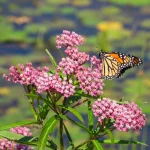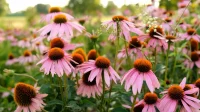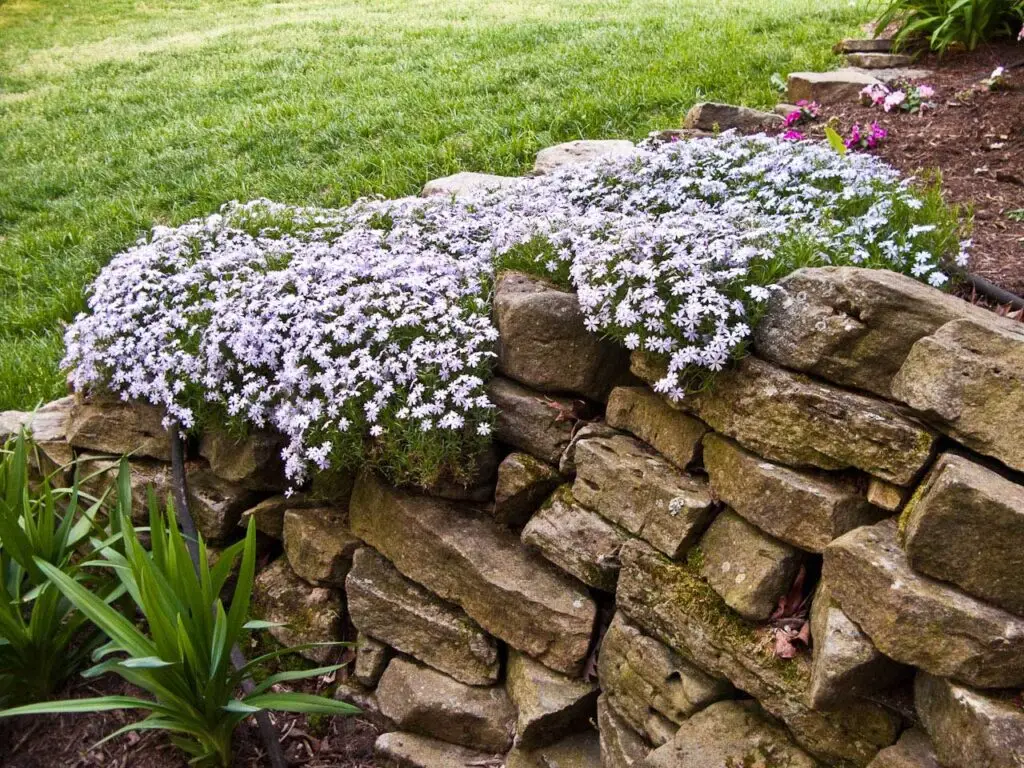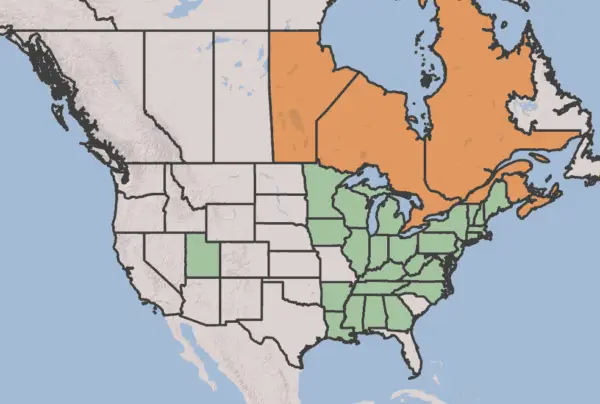Looking for a stunning ground cover or a native plant for a walkway edge? You’ve found it. Creeping Phlox is a quickly spreading native plant that also stays evergreen in most climates. In the spring, it puts on a show when it covers itself in tiny five-petaled flowers. Pick a color (or a few!) and it will return beauty and resilience for years. Explore tips and types below.
You’ve probably seen this native plant before, tumbling over a garden edge, or adorning someone’s front door while in full bloom. The bonus: Creeping Phlox’s leaves are evergreen. In this article, we’ll explore different types and share planting tips for this native gem. Let’s dig in, shall we?
How do you say ‘Phlox’?
To pronounce this plant’s name, turn the ‘ph’ into an f-sound. If it was spelled phonetically, it would be flox or flocks, and when said aloud, it rhymes with box.
I want a box filled with phlox to look at while I eat lox—all the italicized words rhyme. (Ok, bad puns will stop there!)
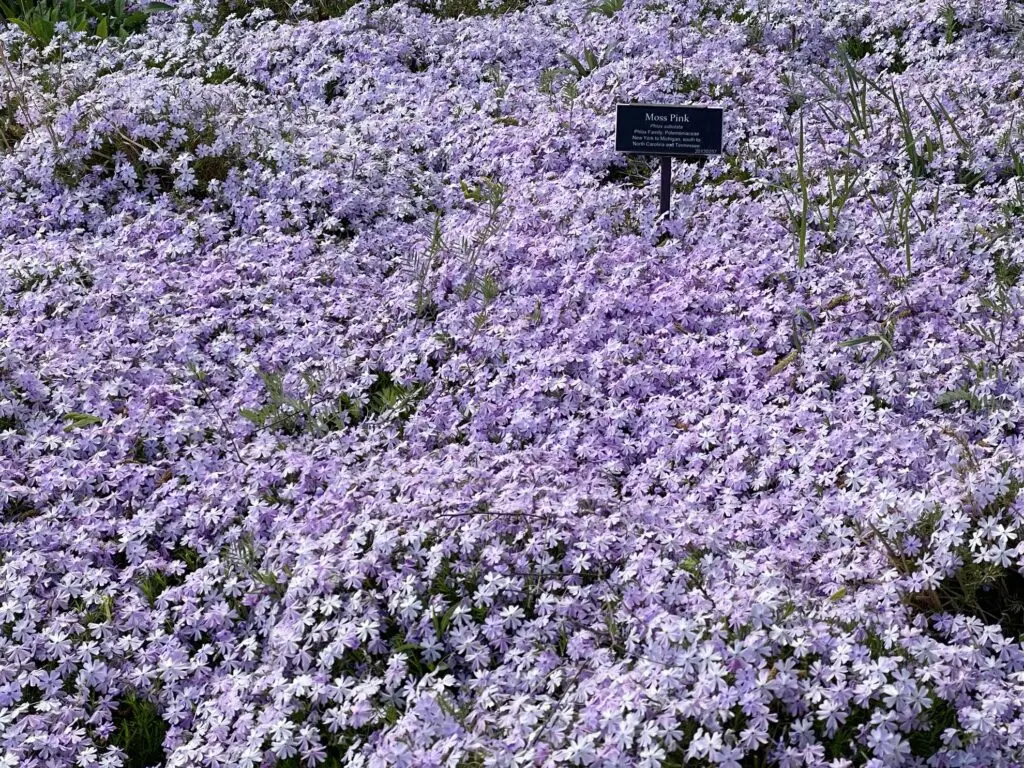
Where is Creeping Phlox native?
Creeping Phlox (also sometimes called by another common name ‘Moss Phlox’) is native to half of the eastern US and parts of Canada. Anyone from Louisiana to Maine can plant this native flower.
Creeping Phlox Cultivars
A cultivar is a plant that has been changed or curated by humans (it stands for CULTivated VARiety—learn more about cultivars.) Cultivars offer beauty, but they cannot beat the ecological benefits of planting a true native species.
That said, sometimes all we can find are cultivars at our local nurseries, or we fall in love with a cultivar’s looks, height, or resilient capabilities. Here are some cultivar Creeping Phlox varieties you may find:
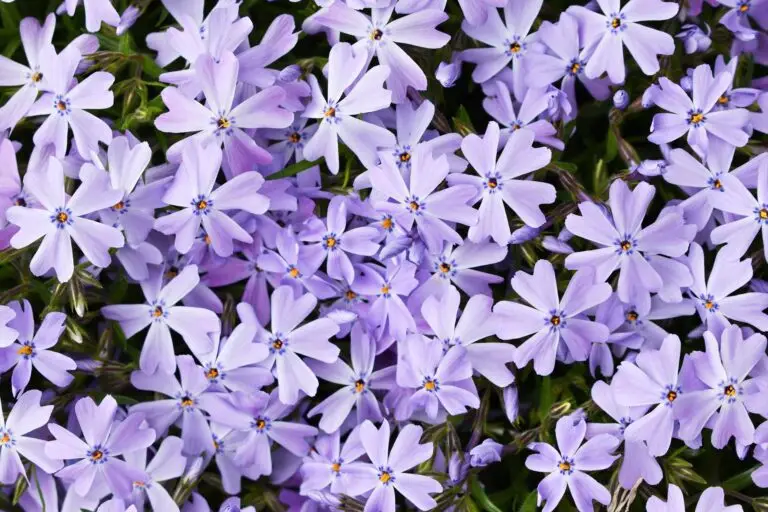
Phlox 'Emerald Blue'
Phlox subulata ‘Emerald Blue’
The bright blue-purple variety of Phlox sometimes goes by the common name “Creeping Phlox.”
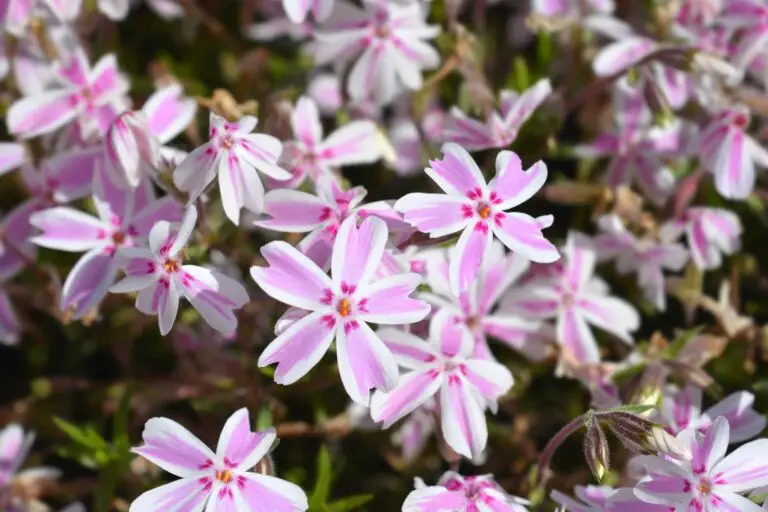
Phlox 'Candy Stripe'
Phlox subulata ‘Candy Stripe’
The ‘Candy Stripe’ variety of phlox has a lovely pink and white striped flower.
Creeping Phlox is a great native plant to grow in borders, tumbling along fences, or alongside walkways. It looks great in high-profile areas because it flowers in the spring and stays evergreen throughout the year. It’s so easy to plant—happy with just rain after being established!—and because it’s a perennial, plant once and it will come back year after year.
Creeping Phlox (Phlox Subulata) is just one of the sixty species of phlox native to North America. Want to meet a few other phlox cousins? Head over to our Beginner’s Guide to Native Phlox to learn more.
Sources
- Johnson, Lorraine. 100 Easy-to-Grow Native Plants for American Gardens in Temperate Zones. (1999), 44.
- Missouri Botanical Garden, Phlox
- Brandes, Kate. Native Plants for the Small Yard: Easy, Beautiful Home Gardens that Support Local Ecology. Maxfield Design, 2024.
- Bruce, Hal. How to Grow Wildflowers and Wild Shrubs and Trees in Your Own Garden. New York: Alfred A. Knopf, 1976. 79-82.
- North Carolina State University Extension. “Phlox subulata.” NC State Extension Plants. Accessed July 21, 2024. https://plants.ces.ncsu.edu/plants/phlox-subulata/.
